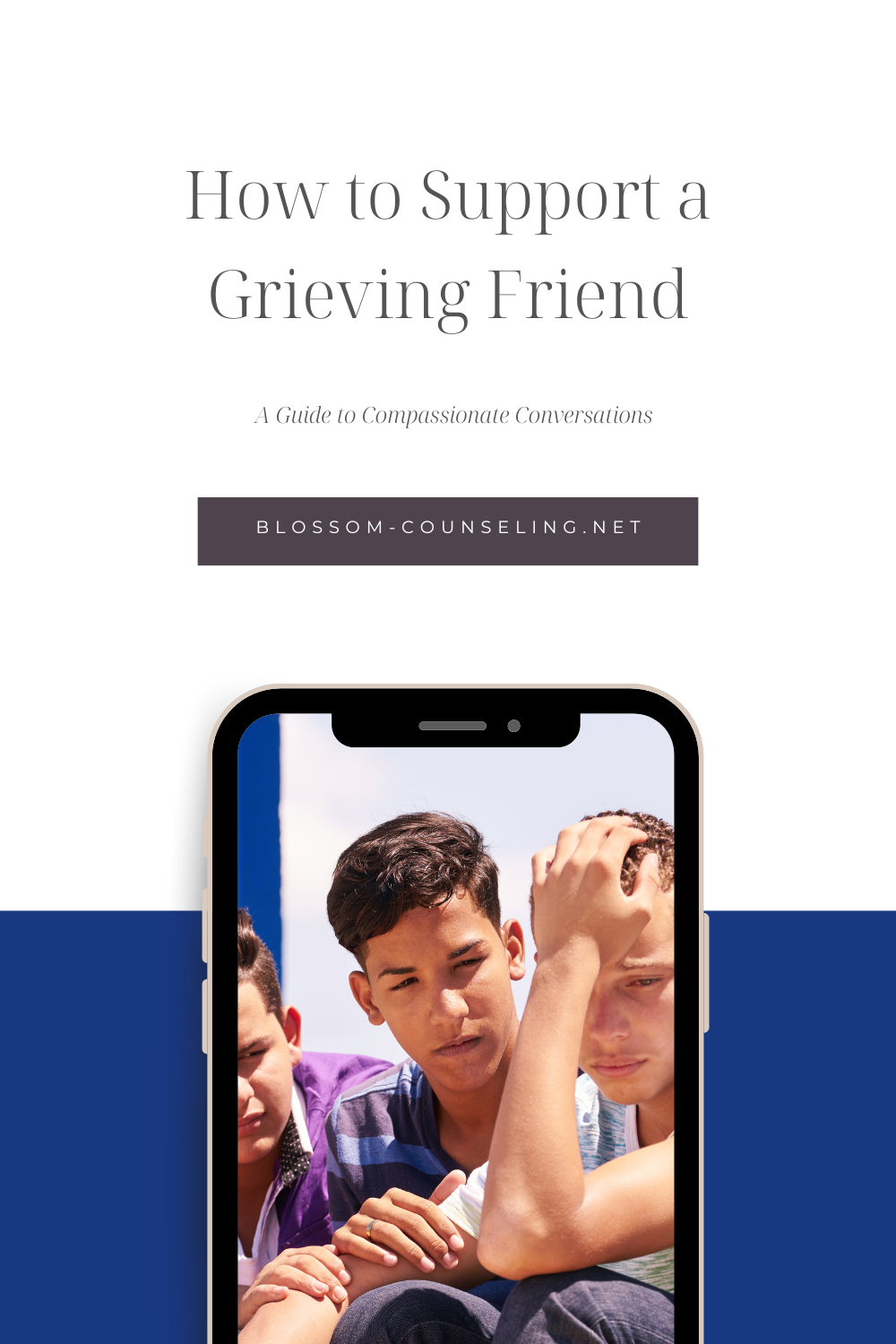
Grief is one of the most personal and challenging experiences a person can face. When someone you care about is grieving, it’s natural to feel unsure about what to say or do. You might worry about saying the wrong thing, making them feel worse, or even avoiding them altogether because you don’t know how to help. The truth is, showing up and being present often means more than finding the “perfect” words.
Grief doesn’t follow a set timeline, nor does it look the same for everyone. Some days might feel manageable for your loved one, while others might feel like an emotional storm. Your role as a supporter isn’t to fix their pain but to hold space for it. Here are some ways to navigate this sensitive terrain with empathy and understanding.
Start by Listening
One of the simplest yet most impactful things you can do is listen. Grieving people often carry a heavy emotional load, and being a nonjudgmental sounding board can be incredibly healing. Resist the urge to fill silences or offer advice unless it’s asked for. A phrase like, “I’m here to listen whenever you want to talk,” can go a long way.
Listening also means accepting their feelings as they are. Grief is messy and nonlinear; it can bring up sadness, anger, guilt, or even moments of laughter. All of these emotions are valid. Let your loved one know that whatever they feel is okay.
Avoid Clichés and Platitudes
It’s tempting to lean on phrases like, “They’re in a better place,” or “Everything happens for a reason,” but these can feel dismissive, even if they come from a place of good intentions. Instead, focus on acknowledging their pain with statements like, “I can’t imagine how hard this must be,” or, “I’m so sorry you’re going through this.”
Simple, heartfelt statements convey empathy without minimizing their grief. If you’re not sure what to say, it’s okay to admit that: “I don’t know what to say, but I want you to know I care.”
Be Present in Practical Ways
Grief can make even the smallest daily tasks feel overwhelming. Offering specific, actionable support can be a lifeline. Instead of saying, “Let me know if you need anything,” try something more direct:
- “Can I bring over dinner this week? What night works best?”
- “I’m heading to the store; what can I grab for you?”
- “Would it help if I walked your dog or picked up the kids from school?”
Practical support can show you care without putting the burden on them to ask for help.
Respect Their Boundaries
Everyone grieves differently. While some people might want company and conversation, others might need solitude. Pay attention to cues and respect their preferences. It’s okay to check in with a simple text or call, letting them know you’re thinking of them without demanding a response.
If they decline an offer to talk or spend time together, don’t take it personally. Grief ebbs and flows, and your willingness to adapt to their needs will mean more than pushing them to engage when they aren’t ready.
Share Memories, If Invited
If the person grieving has lost a loved one, they might appreciate hearing positive stories or memories about that person. This can keep their memory alive in a comforting way. However, always gauge their response—some people may not be ready to hear these stories early in their grieving process.
Normalize the Long Journey of Grief
Grief doesn’t end after a few weeks or months. Anniversaries, holidays, and even random days can bring back waves of sadness. Let your loved one know you’re still there for them long after the initial loss. Remembering significant dates or checking in “just because” can make them feel supported even when others may have moved on.
Supporting someone who is grieving isn’t about having all the right answers. It’s about showing you care, being patient, and allowing them the space to heal in their own way. When you approach their grief with compassion and authenticity, you help create a safe space for them to process their loss—and that’s a powerful gift.
Our team of compassionate therapists is here to help you find the support you need. We believe in a holistic approach, treating your mind, body, and spirit. With a blend of traditional and alternative therapies, we tailor your experience to meet your unique needs. At Blossom, we create a non-judgmental space where you can be your authentic self. Our goal is to empower you, amplify your strengths, and help you create lasting change. Together, we’ll navigate life’s challenges and help you bloom, grow, blossom! You deserve to become the best version of you.




